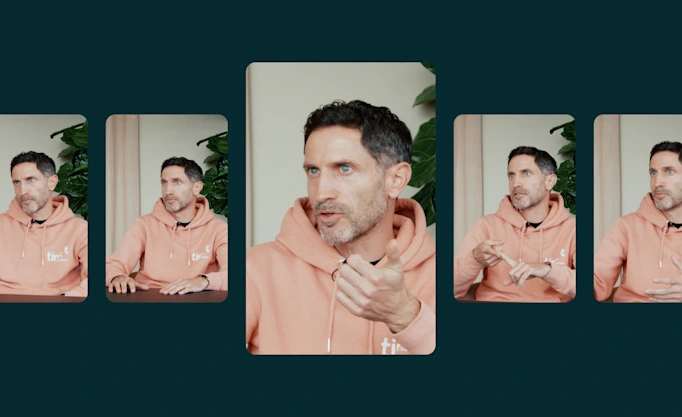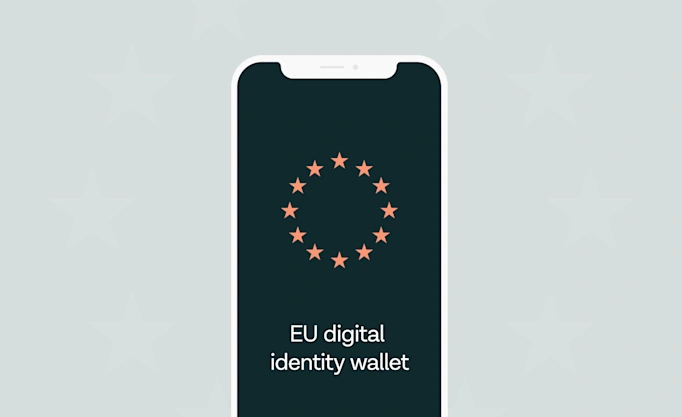How we’re helping to make PSD2 successful from the inside out

Since before PSD2 became law, we have been working at a European level to advocate for the changes that are now becoming core to the open banking movement. And it’s because we see a future in which the banking and financial services industry takes a major leap into the future. Here’s the role we’ve played – and why it matters.
We’ve been using our voice – at times to the chagrin of the industry – since 2012 to weigh in with policymakers and advocate at a governmental level for those who struggle to make their voices heard: smaller third parties trying to innovate the industry and the consumers, who should now have the right to unlock their own bank data and use it to find services that benefit them.
We know all too well that bringing new banking regulations to life is never a simple task. And when it comes to industry-changing regulations like PSD2, the challenges involved are substantial.
Turning open banking into policy isn’t quite a matter of legal clarifications – but a massive shift in culture.
Tink is one of the few third-party providers engaged with policymakers and regulators at a European level. Beyond providing the third-party perspective and advocating on behalf of our customers, we’ve also been sharing our experience and technical expertise on hot topic issues related to PSD2’s Regulatory Technical Standards (RTS).
This is an entirely new field for financial authorities, legislators, banks and third parties like us – and an industry-wide effort is required. We’re doing our part to help push things forward, and here’s what that looks like.
The powerhouse duo behind our EU work
Getting the technical infrastructure right when it comes to open banking has been one of the biggest challenges throughout Europe. The types of technology that Tink builds to enable this industry shift are brand new, and they’re constantly evolving.
So Tink has thrown our hat in the ring to advocate for the right technical conditions, helping to advise EU legislators when it comes to defining and clarifying the PSD2 legislation that regulates aggregation information services (AIS) and payment initiation services (PIS).
And to do that, we’ve sent our powerhouse duo to Brussels.
One half is our Executive Advisor for Public Affairs at Tink, Ralf Ohlhausen. He’s been a guiding voice in the payments industry for decades, a member of the European Central Bank’s Euro Retail Payments Board – and to top it off – is vice-chairman of the European TPP association (ETPPA). Go Ralf.
Then there’s Tomas Prochazka, our VP of Product, who is also a member of the European Banking Authority’s (EBA) PSD2 API working group, there to represent the interests of third parties like Tink. He knows more about the technical side of PSD2 than is humanly reasonable.
They have been meeting regularly with the EBA, the European Commission, members of the parliament, the European Central Bank (ECB) and all the banking associations to help iron out the challenges that have arisen, and to guide the industry toward a solution. Ralf is also in the working groups, task forces and advisory boards of nearly every group in Europe working to improve open banking – and empower people to own and use all their data the way they want.
All of this means having some very difficult conversations to improve the PSD2 situation. But it’s been gratifying to see the impact of this combined effort to move an industry and a movement forward.
Helping to define the tech specs of PSD2
We’re helping provide clarity in many areas of uncertainty. Things like:
What should the APIs look like? How can we guarantee security? What defines a bad user experience, and what can be considered an obstacle to consumers? And once we know that – how do we remove these obstacles?
Our technical experts are providing research and insights into the challenges – and making recommendations about what can be done about it.
Our work to evaluate APIs has also led the national authorities overseeing the implementation of PSD2 in countries like France, Germany and the UK to take notice – and take action by allowing for more flexibility in the PSD2 implementation deadline.
We’ve also made recommendations to all of the national authorities to follow this lead, guarantee flexibility around PSD2 implementation, and ensure that APIs become sufficiently stable and functional before they are granted fallback exemptions.
Why we’re investing so much in advocacy
Our years of experience in creating technologies to build new financial services for European customers has put us in a unique position: we have a voice, and one that’s heard. And we’ve been using it to weigh in with policymakers and advocate for third parties, our customers, and (as we see it) the industry as a whole.
We’ve stood at the forefront of this movement in the hope that we can make a difference – and help ensure the vision of open banking come to life. The way we see it, the opportunities are well worth the challenges. Most importantly though, it’s work that needs to be done. Change doesn’t tend to drive itself.
The technologies and services now available are entirely new in the context of traditional banking, which of course, raises many concerns – especially in terms of security. Just a century or two ago, people would have scoffed at the idea of trusting an institution with their life savings, when they could keep it much more safely stored in their very own mattresses.
But times have changed, and customer expectations along with it. Open banking technologies now exist to answer a demand. People want and deserve better solutions, and the industry (together with its regulations) needs to catch up.
We’ll keep advocating for this vision until it becomes a reality. So if you see us there on the frontlines, give a wave, link an elbow with ours – and let’s work together to make this disruption a time of meaningful change for our industry.
Explore opportunities
If you'd like to explore more about how we can build the future of open banking together, please reach out to us at any time. We’re happy to hear from you.
More in Open banking

2025-06-09
11 min read
The case for “Pay by Bank” as a global term
Thomas Gmelch argues that "Pay by Bank" should be adopted as a standard term for open banking-powered account-to-account payments to reduce confusion, build trust, and boost adoption across the industry.
Read more

2025-06-02
3 min read
Tink joins Visa A2A – what it means for Pay by Bank and VRP
Visa A2A brings an enhanced framework to Pay by Bank and variable recurring payments (VRP) in the UK, and Tink is excited to be one of the first members of this new solution.
Read more

2024-11-19
12 min read
From authentication to authorisation: Navigating the changes with eIDAS 2.0
Discover how the eIDAS 2.0 regulation is set to transform digital identity and payment processes across the EU, promising seamless authentication, enhanced security, and a future where forgotten passwords and cumbersome paperwork are a thing of the past.
Read more
Get started with Tink
Contact our team to learn more about what we can help you build – or create an account to get started right away.
